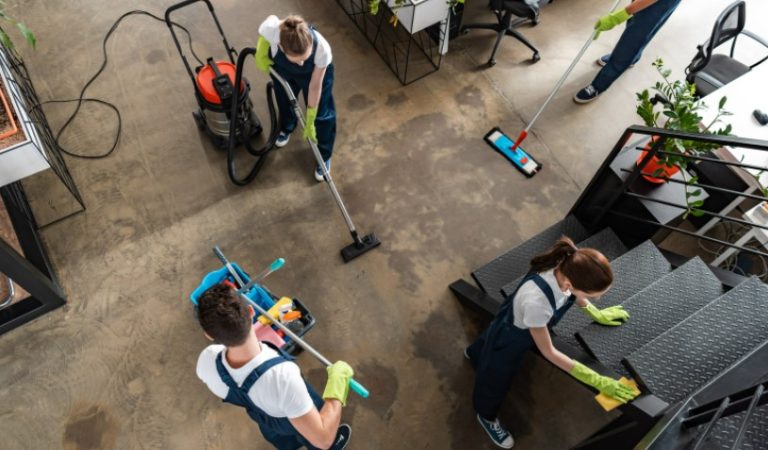Post Contents
Starting your own cleaning company allows you to tap into the UK’s burgeoning cleaning sector, worth more than £9 billion, with the home cleaning market alone worth more than £3 billion per year. It’s a growing industry as more people turn to domestic cleaning services to help with household duties and as more organisations opt to outsource cleaning services to third-party suppliers. An extra million individuals in the UK now use cleaning services at home, compared to a decade ago.
It discovered that 12% of UK households hire a cleaner, and a quarter pays for cleaners because they dislike performing the task themselves. The expenses of starting a business are often modest, and you may start small. Staff expenses, supplies, and overheads are often cheaper, requiring less trained labour. Win a few contracts or a slew of regular residential clients, and your cleaning service will be pretty simple to develop.
However, you’ll need to comply with health and safety regulations strictly, and there will be plenty of competition from other firms — but do it right, and the rewards may be substantial. Continue reading our guide on how to start a cleaning business in UK.
How to Start a Cleaning Business in UK?
1. Select your market

First, you must select what kind of cleaner you will be and what market you will service. Domestic, commercial, and specialised cleaning are the three primary cleaning markets. Your prior experience and skills will most certainly influence your market choice, but you should also do some research. For example, what are the relative sizes of such marketplaces in your local region?
If you want to establish your home cleaning service, it’s essential to be acquainted with the government’s safety rules to keep you and your customers safe.
2. Verify qualifications
Domestic cleaners are often not required to have any credentials. On the other hand, specialist cleaning operations may need certification and commercial cleaning equipment.
Contact the British Institute of Cleaning Science for additional information about cleaning credentials.
3. Create a budget

Cleaning chemicals, mops, and microfiber cloths are some of the items you’ll need if you want to start a domestic cleaning service. On the other hand, commercial and expert cleaners may need to consider purchasing expensive tools such as professional vacuum cleaners or carpet cleaners, costing thousands of pounds. Consider what you’ll need and have enough to cover the essentials.
4. Identify how much you will charge
If you’re unclear about how long you’ll be cleaning, an hourly charge may be wise, although customers generally favour a flat price since they’ll know how much they need to pay you in advance. It would be best to consider implementing an online payment system that allows you to take payments from your consumers.
You might also consider opening a company bank account to keep your funds distinct.
5. Make a plan
You should consider developing a company plan before moving further. This paper will assist you in laying a solid foundation for your business as it begins and grows. You’ll perform market research, create financial projections, and map out your marketing channels as part of your strategy. This phase is covered in detail in our step-by-step guide to drafting a business plan.
6. Look for customers

It’s time to throw now. The market you choose will define the strategies you’ll employ to acquire clients. For example, if you work as a housekeeper, it may be as easy as knocking on doors.
Browse or explore more sophisticated marketing tactics, which you can learn in our guide to marketing and developing your cleaning company.
7. Make a growth strategy
You may want to keep things small, especially if you’re a one-man-band home cleaner. On the other hand, cleaning firms can develop from one-person operations to small enterprises employing many individuals.
Cleaning pro’s top tips
These tips from cleaning business pros will help you to start a cleaning business in UK:
1. Be ready to face a challenge
Starting a company from scratch may be difficult, but it can also be rewarding. Consider how you’ll handle income fluctuations and employee management as your company expands. Above all, don’t give up when things become complicated; stick to your vision!
2. Listen to advice

Make as many relationships or connections as possible; getting input can help you confirm you’re on the right track. And, most crucially, talk to a few different financial experts.
3. Be ready for out-of-the-box requests
Cleaning is a highly personal business, and every one of your clients will have specific needs. You don’t know what request you will get from your client, so be ready for out-of-the-box requests from your clients.
4. Consider catering to landlords
You can service a significant and rising market by becoming an end-of-tenancy pro. Many landlords do not have the time to do comprehensive cleanings between renters. As a result, a cleaning business may find this to be a lucrative market.
5. Don’t forget about insurance
Your clients will want to know that you’re protected if anything goes wrong while working on their property. And don’t forget that if you employ individuals, you’re required by law to have employers’ liability insurance.
Conclusion
After all, a cleaning firm might range from a single cleaner who cleans a few residences every week to a significant commercial enterprise with hundreds of employees. You might specialise in other areas, including residential cleaners, workplace cleaners, hospital and school cleaners, and specialisations such as carpet, window, and vehicle cleaners. Learn how to establish a household, commercial, or speciality cleaning company with the above advice, covering startup expenses, employing workers, locating clients, and the types of insurance your cleaning firm will need. Our above guide on how to start a cleaning business in UK will definitely help you in establishing you cleaning business in UK.


